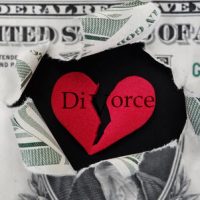How Are Debts Distributed In A Pennsylvania Divorce?

Money-related issues often lead to divorce. Couples who find themselves dealing with financial pressures often find that they cannot work together effectively. Soon, they also come to the conclusion that the marriage needs to come to an end. Unfortunately, many of these spouses are dealing with debt at the time of their divorce. These debts have the potential to affect spouses long after the marriage ends. So how exactly are debts handled in a Pennsylvania divorce, and how do you approach this situation in the most effective manner?
The first step is to get in touch with a qualified, experienced divorce attorney in Pennsylvania. These legal professionals are extremely familiar with all of the various issues you might encounter during a divorce, including those related to debts. With their assistance, you can seek to minimize the impact of the debt you have accumulated during your marriage.
It Doesn’t Matter Who “Owns” the Debt
In Pennsylvania, debt accumulated during the marriage is marital debt. It doesn’t matter who made the decision to acquire the debt. It also doesn’t matter if the debt is joint or not. For example, your spouse may have a credit card in their name only, but this credit card debt is still marital debt.
Coming to an Agreement
By far the best solution is to come to an agreement outside of court. This allows you to handle your debts in a fair manner without the involvement of the court. For example, both spouses might be well aware that certain debt was incurred by only one spouse. Therefore, it may be unfair to make the other spouse responsible for this debt. For example, perhaps one spouse took out a loan to go on vacation. Both spouses can agree that the spouse who actually went on vacation should pay for that debt. In contrast, the other spouse would agree to pay for certain other debts. If you allow a judge to make the decision for you, you could both be disappointed with the resulting decision.
A Creditor May Not Respect a Court’s Decision
It’s important to remember that a creditor may not respect a court’s decision. In other words, they may first attempt to recover the debt from both spouses who are jointly titled on the debt. The creditor may seek recovery from both spouses, even when a court says that the debt is the responsibility of only one of them. The injured spouse’s recourse is to go back to the court for assistance with this problem.
Enlist the Help of a Qualified Attorney Today
If you need help from a skilled Pittsburgh divorce lawyer, contact Bunde & Roberts, P.C. We have been helping spouses with their divorces for years, and we can help you overcome virtually any obstacle you might be struggling with. A divorce should feel like an opportunity to start a new chapter in your life. With our assistance, you can leave the negative aspects of your marriage behind, including concerns about debt. Schedule your consultation today.
